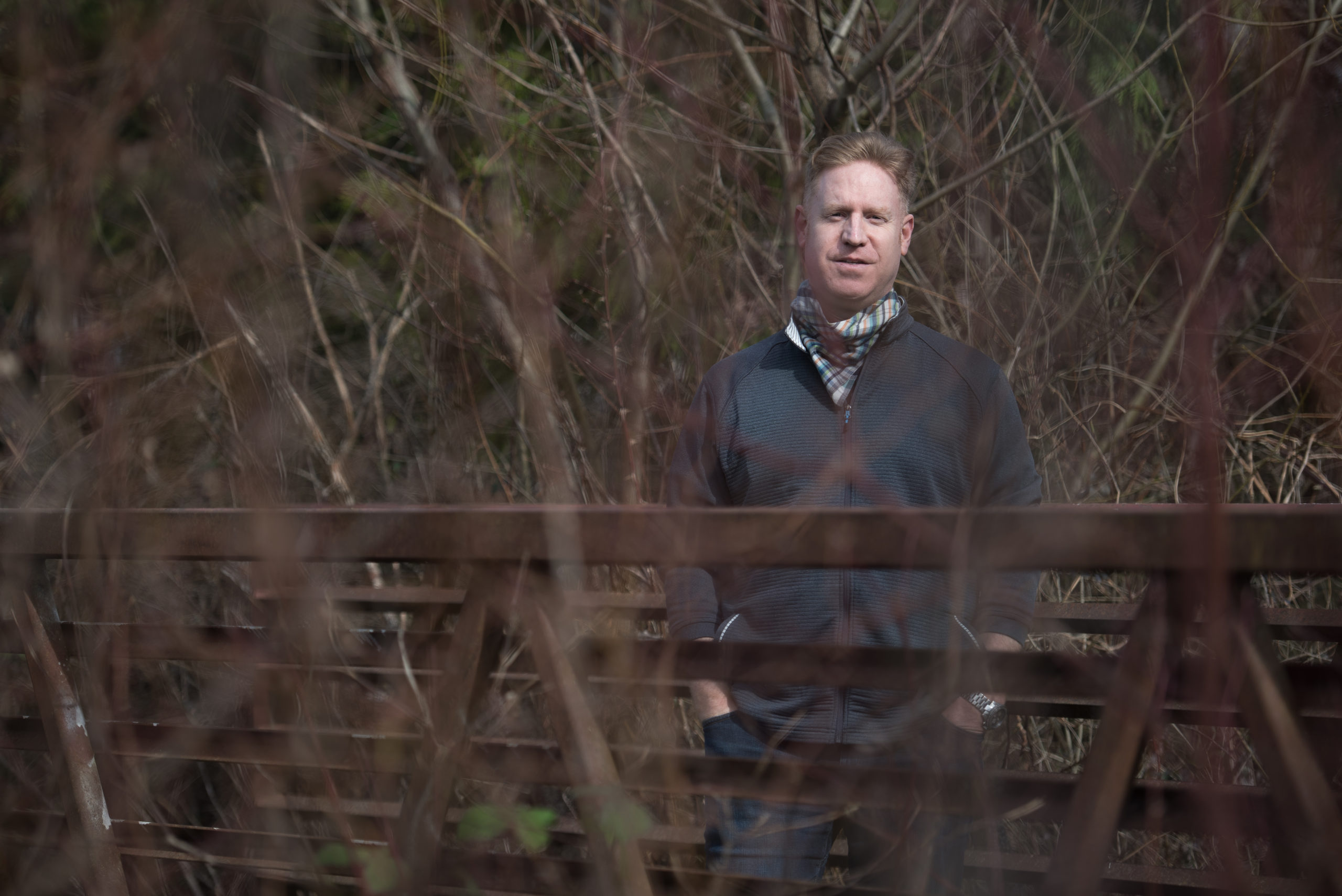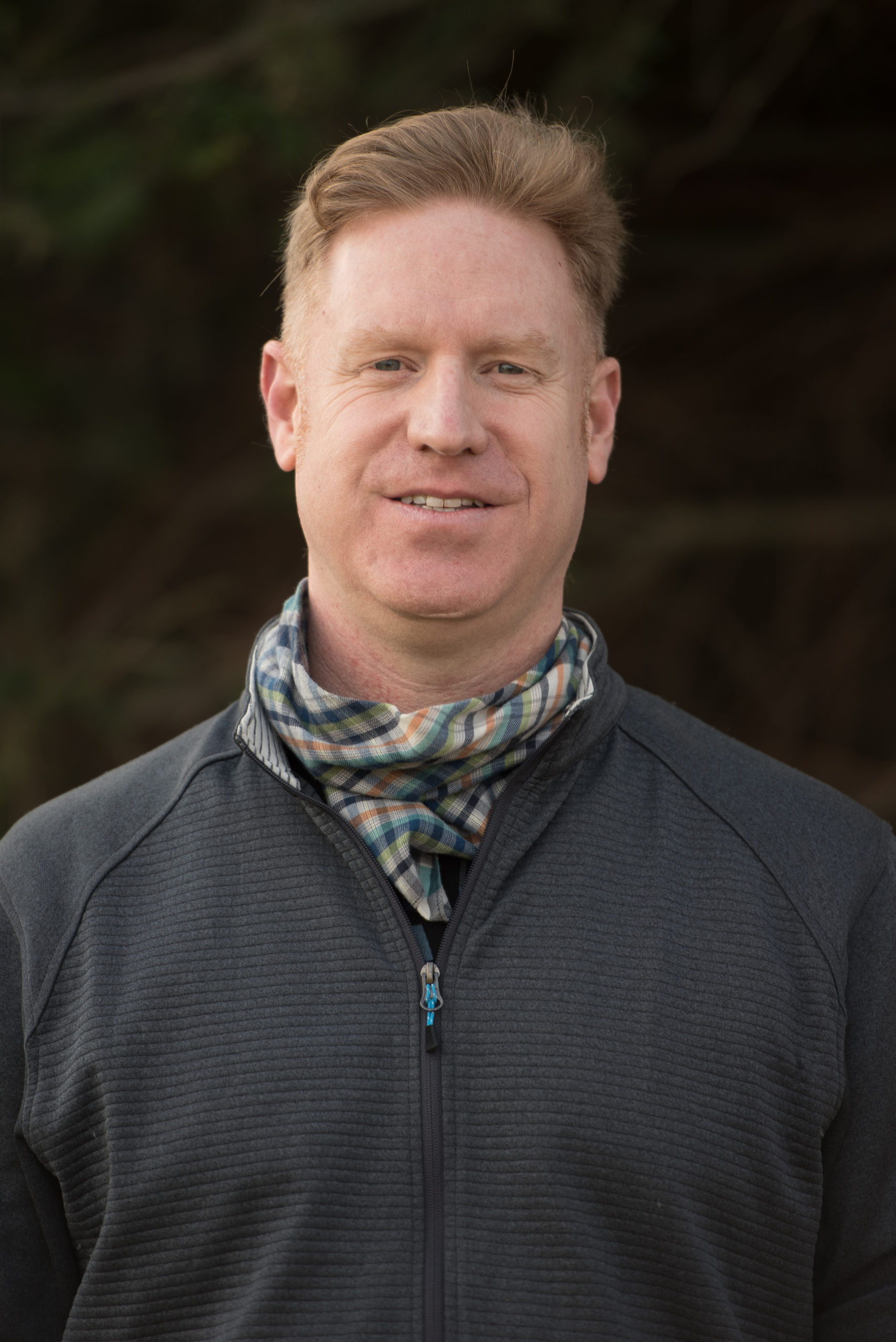Community Through Computers

How Professor Derek Moscato has taught public relations online.
Story by Jaya Flanary // Photos by Oliver Hamlin
I remember being the 17th person on the waitlist for J207, Newswriting, the primary prerequisite for all journalism classes at Western Washington University. After taking a gap year between high school and college, I was doing everything I could to speed up my graduation process. If I didn’t get into this class, it would change my entire course schedule.
Checking waitlists on Web4U is a frustrating process, but I was doing it every chance I got: in between classes, on my work break, even as I bumped shoulders with a peer on the jam-packed bus.
By the power of a miracle, I got in. I was taking the class with Professor Derek Moscato, the first journalism teacher I would have in my college career.
I don’t remember the first day of class — it was winter quarter of 2018 — but I remember Derek’s bright orange hair and thick Canadian accent. He seemed pleasant and helpful. Though I was often bored during the basic lectures because of my high school newspaper experience, Derek pushed us to write stories outside of our boundaries.
Halfway through the quarter, he took the class to Carver Gym to watch a basketball game. He didn’t care if we didn’t write sports, like sports or even know sports. We were tasked with writing a news article about that night’s game, complete with a “post-game press conference” he set up. All of us young, inexperienced, awkward freshmen sat across from one of WWU’s players. No one wanted to ask the first question.
Three years and four days later, I’m at my desk, in my room, Zooming with Derek amid a global pandemic. Times do change.

Derek reminisces about one of his final in-person classes last winter, when he took his J407 students in his Public Relations Case Studies class downtown Bellingham, Washington, to visit places like the waterfront revitalization and redevelopment project.
“It was just this beautiful winter morning in Bellingham and we were all bundled up but the sun was shining,” he says. “Looking back … that was one of our last times that we got to engage and all be together as one community in live-time. Everything shook out after that and our new reality started at that point.”
Soon after, WWU switched to online full-time. Professors were tasked with suddenly creating online courses for classes usually held in-person. “It was just a really strange time,” Derek says. “Our community of students and teachers handled it really well.”
Derek saw the switch as a good opportunity to improve his skill set developing curriculum on Canvas. Though he used Canvas before, it was a learning curve to become more familiar with modules and other tools through WWU’s Academic Technology and User Services classes for professors.
“It was much better for my senior level class because I knew a lot of the students and we had that preexisting relationship, so that was a lot easier of a transition,” Derek says.
Online learning produced more challenges for students taking J330, Principles of Public Relations, which is the first class students take in the Public Relations track. Derek believes it’s much more engaging to meet new students in person.
To offer a variety, Derek’s classes are blended asynchronously and synchronously. “I really like touching base with students on a regular basis, so I can check in with them and they can check in with me,” he says.
Unfortunately, online classes don’t provide the opportunity to walk around downtown on a beautiful winter morning, so Derek has introduced other ways to give students hands-on public relations experiences. Meeting on Zoom allows him to bring in guest speakers from other places, who wouldn’t be able to speak in an in-person class.
“I’m a major advocate of experiential learning. Whether it’s live-time or not I do believe it’s imperative that students are engaging with the world that’s out there and our local community,” Derek says. “I also think that in a journalism department, where we’re teaching students not only academic concepts but also professional skill sets, that they really do need to be engaging experientially in the world.”
Recently, the WWU chapter of Public Relations Student Society of America hosted an industry networking event on Zoom that allowed students from WWU and other Washington state colleges to meet executives from lead companies such as Amazon, Alaska Airlines and Edelman.
“It was just this really neat atmosphere of people connecting together like a community,” Derek says. “And I’m not sure we would’ve done that previous to the lockdown. So, that was really gratifying.”
His students are doing their case studies on Pacific Northwest organizations, connecting with professionals online and doing small discussion work in Zoom breakout rooms. “Whether you’re in a synchronous or asynchronous or live-time format, you want to build up that community of learners,” Derek says.
One assignment in his J407 requires students to learn how to do successful TV interviews representing an organization at WWU’s Digital Media Center. They are coached to not “get tripped up” and to avoid providing vague or “no comment” answers. Derek was worried the mock interviews would be difficult to do online, but he believes students rose to the occasion.
“They looked comfortable with the new technology, and also they looked like they may have been having a little bit of fun,” he says, laughing.
Based on the successfulness of the assignment, he’s considering incorporating online interviews into in-person classes in the future. According to President Sabah Randhawa, in-person classes are tentatively set to begin this fall.
“I’m looking forward to bumping into students in the hallways and having those 10 second conversations,” Derek said. “I really miss that, those hallway and stairwell conversations. We don’t have that anymore.”
After J207, I never had Derek as a professor again. While I’m on the Visual Journalism track, he primarily teaches public relations students. But I do remember seeing him in the hall. He’d say hello. He remembered my name. He even complimented me on a story I wrote for The Western Front.
“My heart goes out to students who are just arriving and students who are just leaving,” Derek says. “I get choked up a little bit because we’re not going to be able to hear your thoughts on the last days and see you, in live-time, take those next steps.”
“I kind of feel like I’ve come full-circle,” I tell him as we talk about my internship next quarter, which he, by the power of a miracle, is my adviser for.
Derek, my first college journalism professor, is set to be my last.
